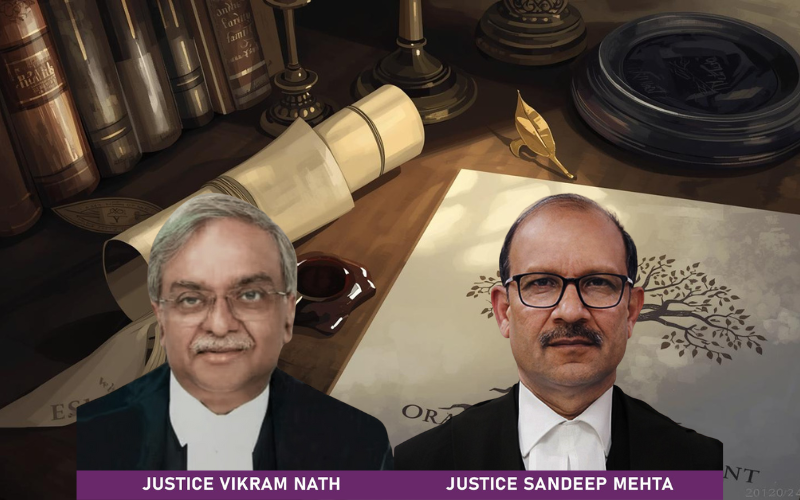An Insight into Legal Succession and Property Rights under Hindu Succession Act
In a pivotal judgment, the Supreme Court of India addressed the complexities surrounding the validity of a registered Will and an oral family settlement in the case of Metpalli Lasum Bai (Since Dead) v. Metapalli Muthaih(D). This judgment provides crucial insights into property rights, inheritance, and the application of the Hindu Succession Act, 1956, offering a comprehensive understanding of how the judiciary evaluates claims to ancestral property and the authenticity of testamentary documents.
Background of the Case
The dispute emerged from the conflicting claims over a substantial tract of land owned by the deceased Metpalli Rajanna. His second wife, Lasum Bai, and his son from his first marriage, Muthaiah, were embroiled in a legal battle for rightful ownership. The core of the dispute lay in the interpretation of a registered Will executed by Rajanna and an oral family settlement intended to distribute his properties among his heirs.
Trial Court's Findings
The trial court originally decreed in favor of Lasum Bai, recognizing her exclusive title over the disputed properties based on Rajanna's Will and the oral family settlement. The court acknowledged the genuineness of the Will, as Muthaiah admitted the signatures were indeed those of Rajanna. Moreover, the oral family settlement corroborated by the possession of the property by Lasum Bai further strengthened her claim.
High Court's Reversal
However, the High Court reversed this decision, reducing Lasum Bai's share to 1/4th while granting Muthaiah a 3/4th share of the property, interpreting the land as joint ancestral property. This decision was challenged in the Supreme Court by Lasum Bai's legal representatives and Janardhan Reddy, the purchaser of part of the disputed land.
Supreme Court's Rationale
Upon reviewing the evidence, the Supreme Court reinstated the trial court's decision, emphasizing several key points:
1. Presumption of Genuineness: The registered Will, being a formal document, carried a presumption of genuineness. The onus was on Muthaiah to prove any suspicious circumstances surrounding its execution, which he failed to do.
2. Admission of Signatures: Muthaiah's admission of his father's signatures on the Will reinforced its validity, making it difficult to contest its legitimacy.
3. Possession and Family Settlement: The consistent possession of the property by Lasum Bai and the oral family settlement supported her claim, as the settlement was corroborated by actions taken during Rajanna's lifetime to distribute the land amicably.
4. Intent of the Testator: The Will reflected a balanced distribution of assets among the heirs, indicating Rajanna's intent to avoid familial disputes, thereby lending credence to the document's authenticity.
Conclusion
The Supreme Court's judgment underscores the importance of registered testamentary documents and oral agreements in determining property rights among heirs. It highlights the judiciary's role in safeguarding the intentions of the deceased while ensuring equitable distribution among beneficiaries.
This verdict not only reinstates Lasum Bai's rightful ownership but also sets a precedent for similar disputes, reinforcing the principles of fairness and justice in succession cases. By reversing the High Court's judgment, the Supreme Court reaffirms the sanctity of registered Wills and the validity of oral family settlements, provided they are substantiated by evidence and admission of relevant parties.
In conclusion, this case serves as a significant reference for legal practitioners and individuals dealing with succession and inheritance issues, particularly in the context of Hindu family law.
Metpalli Lasum Bai (Since Dead) v. Metapalli Muthaih(D), (SC) : Law Finder Doc Id # 2752811




